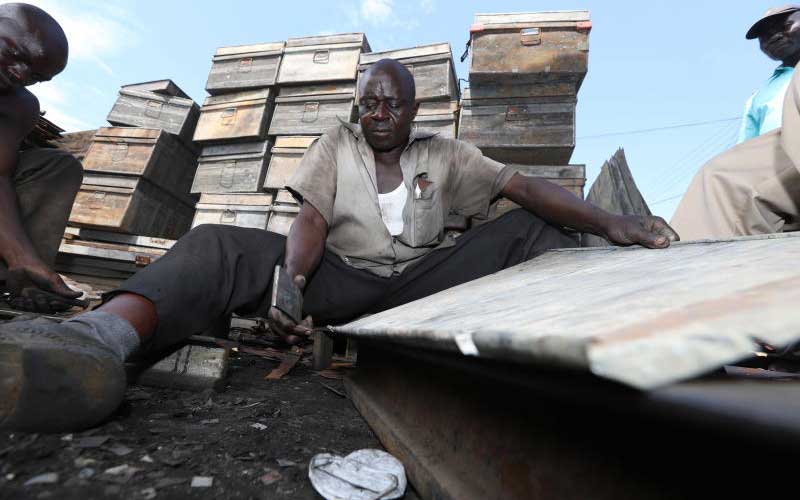×
The Standard e-Paper
Smart Minds Choose Us

Thadeus Onono, a tinsmith, makes iron sheet boxes at his stall in Kibuye juakali market in Kisumu on January 09, 2020. [File, Standard]
One of the pillars of President Uhuru Kenyatta’s Big Four agenda is the creation of decent manufacturing jobs. As part of his legacy, Kenyatta wants to create a million new jobs before he leaves office in 2022.